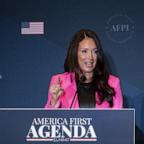Cohen says he was disappointed to not get WH position
When Donald Trump won the 2016 election, Cohen testified there was no role for him in the incoming administration.
"My service was no longer necessary," Cohen said.
He was offered a position in the White House as "assistant general counsel" by Reince Preibus, but turned it down. He said he was disappointed he was not considered for chief of staff.
"I didn't want the role. I didn't believe the role was right for me or that I was even competent to be chief of staff. I just wanted my name to be included," he testified.
"It was more about my ego than anything," Cohen said about his disappointment. "I would have liked to have been considered."
Cohen said he pitched being "personal attorney to the president." He would need the role, Cohen said, because there were "outstanding matters" to be dealt with. Cohen conceded it would have helped him personally and professionally.
"I also had another thought in mind, which was consulting. That's what I really wanted because that afforded me the time to stay at home, in New York," he said.
Cohen testified it could have been lucrative to help people understand Trump's thinking.
"Mr. Trump was an enigma," Cohen said. "Because of my close proximity to him for a decade, I did understand."
"Did you think you could monetize being personal attorney to the president?" prosecutor Susan Hoffinger asked.
"Absolutely," Cohen said.
Trump's eyes remained closed during this portion of the testimony.





